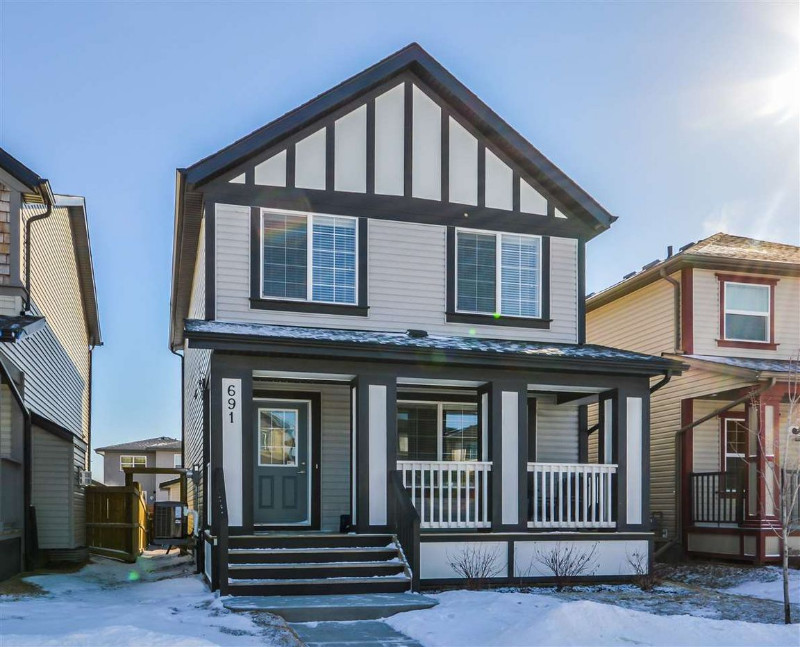
Though everything is looking rosy for the nation’s housing market, Calgary’s average sale prices seem to be going against the trend. According to latest figures from the Canadian Real Estate Association (CREA), the average sale price in the country – at $508,097 – was 13 percent higher over the same period last year. The spike was led by the booming residential real estate markets in Vancouver and Toronto. In contrast, Calgary witnessed a 3.5 per cent slump in prices, a possible consequence of the big job losses in the energy sector, following plummeting crude oil prices.
Presently, the benchmark home price (the sale price of a general property in a specific area) in the city is $441,000. Listings have increased, and buying and selling activity continues to be robust. This is in line with the overall trend: April was the busiest ever month for home sales in Canadian history. Housing construction is also moving along strongly, especially in northwest Calgary.
In the first quarter of 2016, construction starts in the northwest quadrant surpassed the city’s southeast by 60 per cent. Totally, there were 75 starts, with a large majority concentrated in Sherwood and Nolan Hill. At 23 starts, Calgary’s northeast registered the second highest supply of new residential inventory.
Evanston had the highest number of listings of attached homes (duplexes and townhouses). The median resale value was $410,000, which means those who had bought homes in the residential neighborhood a year earlier saw their returns grow by 21 per cent.
There were fewer starts on apartment-style condos, 33 against hundreds in the northeast. As far as duplexes were concerned, northwest recorded the fastest pace in completion of duplexes. In the last quarter, 46 duplexes were completed (many spec homes), and the average price on spec duplexes stood at $687,644. This represents a year-on-year increase in the number of spec duplexes as well as prices, previously 23 and $654,059 respectively.
The general consensus is that Calgary is still an attractive market for residential real estate investment, and not getting hit quite as badly as it did during the last oil crash.
The State of the Canadian Real Estate Market: Key Points from PwC’s 2016 Report
PricewaterhouseCoopers has released their Emerging Trends in Real Estate report for 2016, discussing the changing face of the country’s property market. Here are a few key points from the report.
- Home prices continue rising, notably in Vancouver and Toronto. A chief reason pushing up prices is the increase in land prices, a reaction to provincial government policies. In British Columbia and Ontario, for instance, greenbelt legislation is restricting land supply to prevent urban densification on prime farmland and natural areas.
- A more obvious reaction to the price rise is the growing preference among many Canadians to rent versus buy a home. Retirees are also choosing to rent after selling their home as opposed to buying a smaller home. Developers are responding to this demand by constructing purpose-built rental units. Landlords are looking to sign on new tenants and extending the lease of existing ones.
- However, single family and condominium sales are soldiering on in the face of increasing home prices, which have exceeded Canadians’ income growth.
- Investors’ interest in healthcare and medical properties has increased, as the nation’s healthcare sector now faces the challenge to accommodate and care for an aging generation of baby boomers.
- Investors feel that the real estate market is taking a respite after years of expansion and growth. They have started focusing on opportunities in the United States and other foreign markets.
- On the foreign investor front, the news is all good. Global property investors are flocking to Canada for the lower Canadian dollar, and have their eye on traditional markets (Calgary, Vancouver, and Toronto), as well as development land and farmland in Montreal and Saskatoon.
- As oil prices nosedive, there has been some speculation around eastern Canada becoming a significant driver of economic growth. According to the report, the impact of a weakened energy sector is only starting to be felt by the real estate market. In certain locations like Alberta, there have been few large real estate deals. The province has faced many boom and bust cycles in the past, giving investors the confidence to just ‘hold’ as a strategy. In other locations, low energy prices may actually bode well for certain sectors and boost non-energy exports. Savings at the gas pump can encourage consumer spending, which could benefit retailers, and support commercial, industrial and office real estate activity.
Watch this space for more real estate news and trends.
